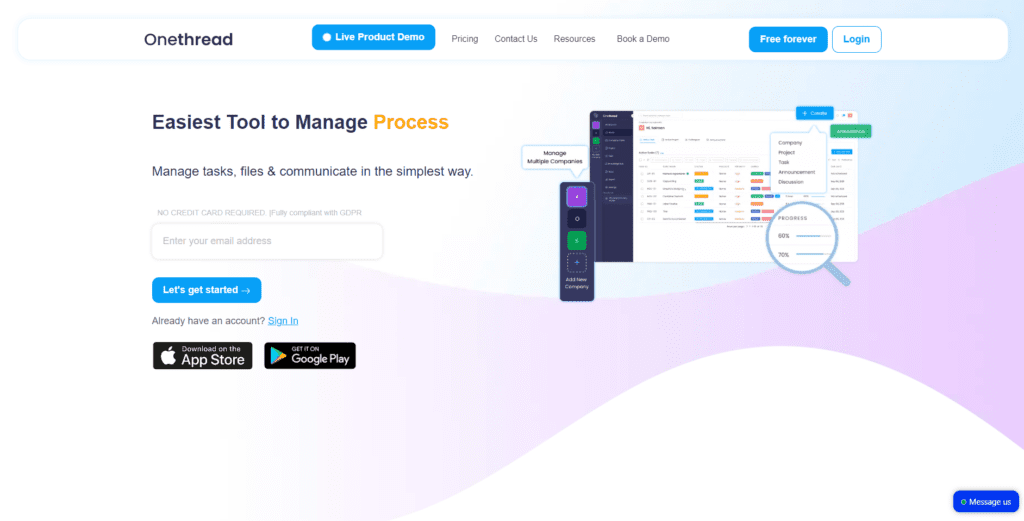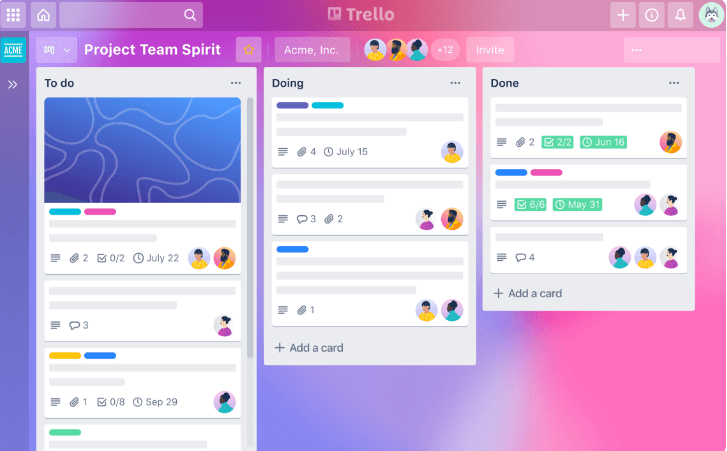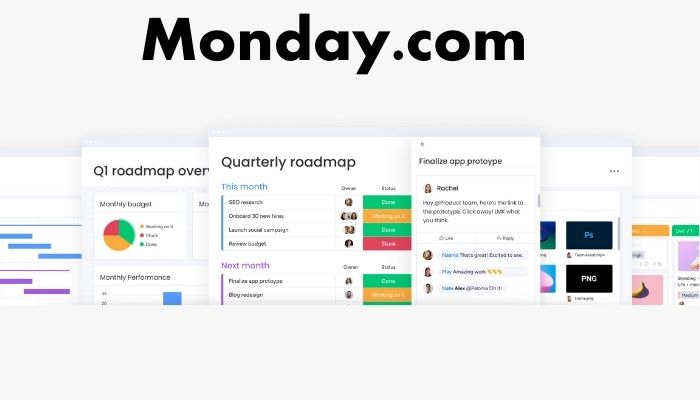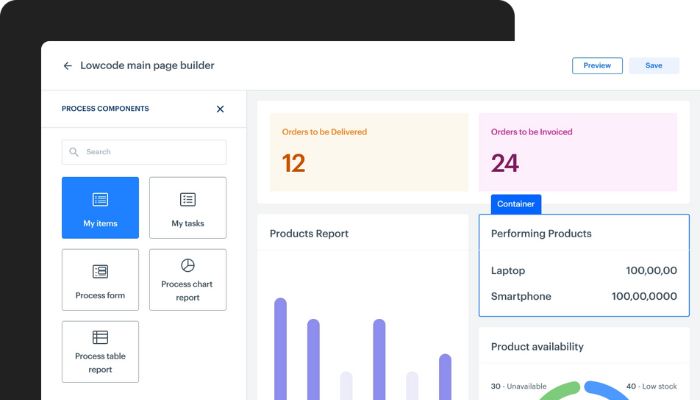The best workflow systems need the best workflow management capabilities. Read on to learn about 20 must-have workflow management capabilities that will help you improve the efficiency of your workflow system.

These features include task delegation, automated processes, collaboration tools, cloud storage, audit trails, customizable dashboards, notifications and alerts, and more. With these features, your workflow management system can support complex processes and operations.
What are these Workflow Management Capabilities?
1. Automated workflow processes
There is no better way to improve efficiency than by eliminating tedious processes. Thankfully, automation exists – and the best software includes the workflow capability to automate apparent tasks. Take, for example, Recurring Meetings. Requiring someone to manually create pre-determined daily, weekly, or monthly meeting schedules/tasks wastes time.
Therefore, having an automated workflow process will simplify this – while giving your team time to do things that are more worthy of their merit.
2. Task tracking
For processes with multiple steps or tasks, it is essential to have the capability to track each task as it is completed. Using task tracking, team members will know who is responsible for each job, when tasks are due, and what progress is being made. This capability is also helpful in implementing deadlines and ensuring that all tasks are completed on time.
3. Task prioritization
Another workflow management capability that is essential is the capability to prioritize tasks. By assigning tasks to different levels of priority, you can ensure that critical tasks are completed first and that jobs that require more attention are completed before others
4. Error tracking and reporting
Error tracking and reporting allow workflow managers to identify and address errors quickly. This capability helps ensure that all processes are running as expected and that potential problems are quickly identified, managed, and resolved.
5. Visibility into process performance
It is possible to make improvements or increase efficiency with a clear picture of how processes are performing. Visibility into process performance allows workflow managers to identify bottlenecks, track progress, make meaningful changes, and measure the impact of those changes. Visibility is possible via frameworks like Timeline views, Gantt Charts etc.
6. Robust security
Robust security is essential for ensuring the protection of sensitive data. The best workflow management systems offer multiple layers of protection to ensure that data remains secure while protecting against potential cyber threats.
7. User access control
User access control and monitoring help workflow managers know who can access specific processes or documents and gives them the ability to monitor user activity. User Access Control helps prevent users from performing unauthorized activities and protects against potential data breaches
8. Mobile Access
It’s 2023; work is no longer tied to a desk. Team members work out of a host of devices, including mobile phones. Therefore, your solution must be adaptable for mobile – or else it will be more of a hassle than a blessing.
9. Activity logging
Activity logging is a crucial capability for workflow managers to keep track of changes in the workflow. This capability allows managers to track modifications and reversals and identify trends within workflows.
10. Version control
Version control is a workflow management capability that allows users to view and track document changes over time. Version control enables users to trust that they are working on an up-to-date document and can help them identify areas where a copy or process needs to be updated.
11. Audit trails
Audit trails provide an essential level of accountability by allowing workflows to be tracked, monitored, and analyzed.
12. Real-time analytics
Real-time analytics provide workflow managers with real-time, actionable insights into the health of their workflows. This capability allows them to monitor performance, identify concerns, and quickly make changes.
13. Scalability
Scalability is an essential capability for allowing workflow systems to grow as needed and keep up with changes in user base and task volumes
14. Automated notifications
Automated notifications help workflow managers stay informed about the status of tasks and processes.
15. Integration with other systems
Integrating workflow management systems with other systems gives workflow managers the ability to take advantage of the capabilities and data of those systems without having to build or maintain them in-house
16. Automated backups
Automated backups are essential for ensuring data recovery despite system failure.
17. Customizable reports
Different employees report different things, so a degree of flexibility is required when reporting. Customizable reports make it easier to document performance and assess shortcomings moving forward.
18. Automated testing
Automated testing helps workflow managers detect and address errors before they become a problem. While this is possible manually, it’s wiser to utilize human resources on more meaningful tasks.
19. Asset management
Asset management helps workflow managers track and manage assets in the workflow, ensuring that assets are appropriately accounted for and used effectively.
20. Task-specific templates
Task-specific templates help workflow managers quickly create tasks without making them from scratch. They allow users to customize Task completion based on their organization’s specific needs.
What Software Have These?
OneThread
OneThread is a new project management suite with a heavy stack of workflow management capabilities included. OneThread is a perfect fit for newly exploring workflow systems & software teams – and its features are excellent for getting work done.

Features include dashboards, Gantt Charts, scheduling, timesheets, project baselines, real-time reporting, templates and invoicing features.
OneThread is free for teams of up to five users and charges $1.5 per month for teams of 5 to 60 members. OneThread can provide teams with more than 60 members with custom packages. Therefore, this is a scalable solution that will meet your needs!
Trello
Trello is a popular workflow management software that integrates many workflow management capabilities. It includes task tracking and automated workflows, task prioritization, robust security, and customizable reports

Monday
monday dot com is another workflow management platform that provides many of the capabilities mentioned above, such as automated workflow processes, task tracking, version control, automated testing, asset management, and task-specific templates

Kissflow
Kissflow is a workflow management platform that includes automated workflow processes, task tracking, error tracking and reporting, visibility into process performance, asset management, user access control, and customizable reports.

Final Thoughts
No matter what workflow management software you choose, it is essential to ensure that it offers the workflow capabilities you need to ensure efficient and successful management. Consider the above when selecting the best workflow management software for your organization.
